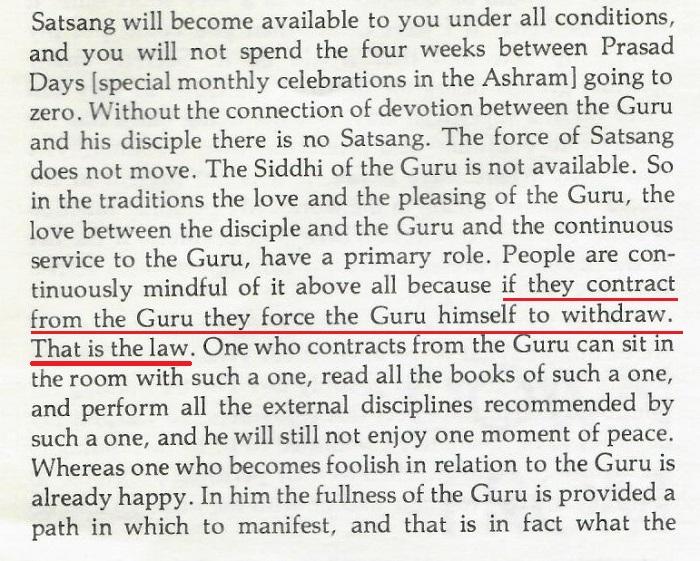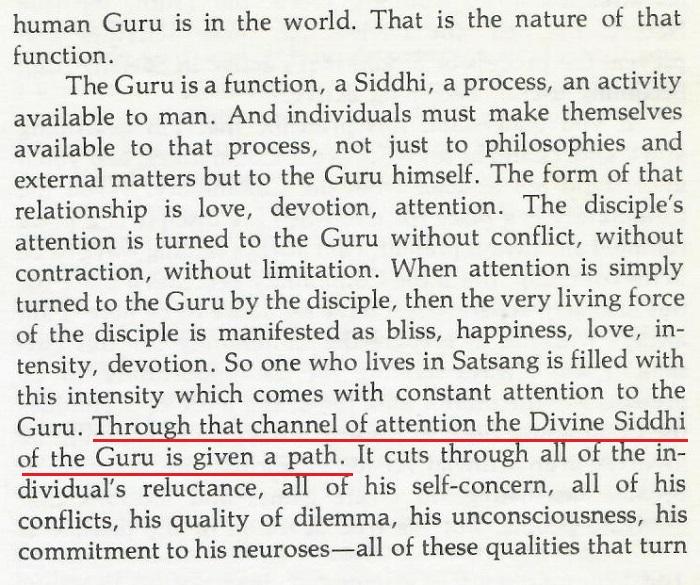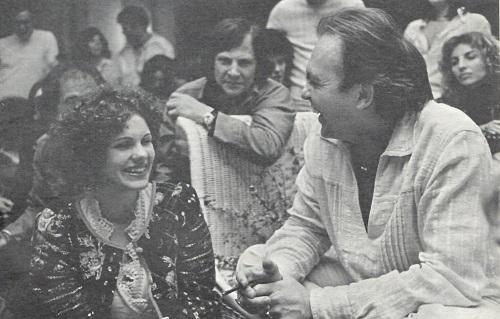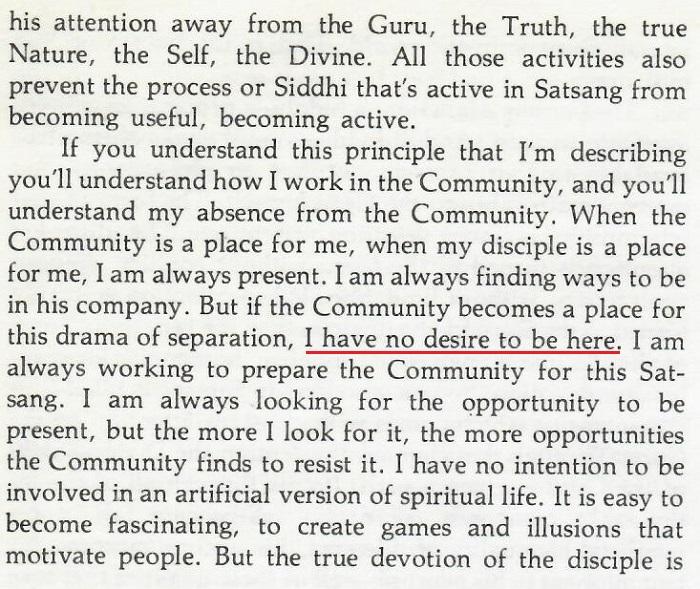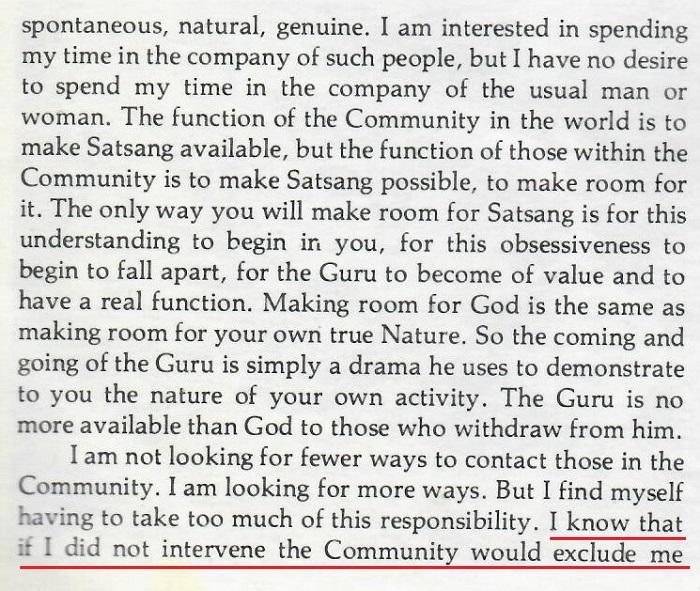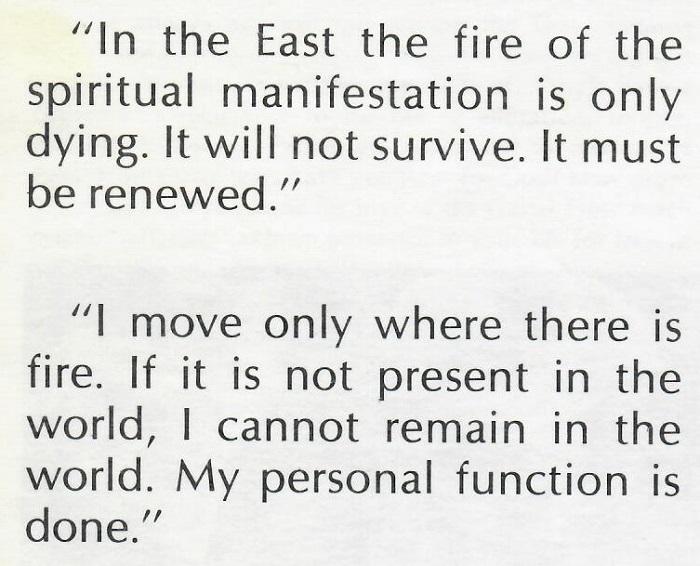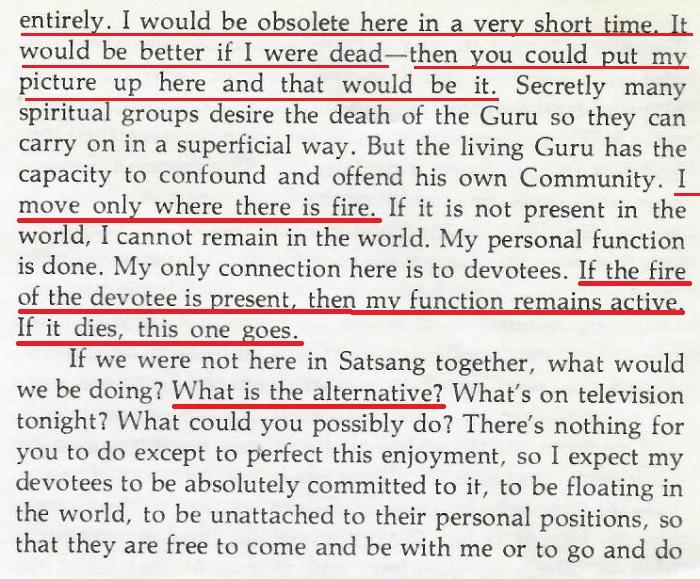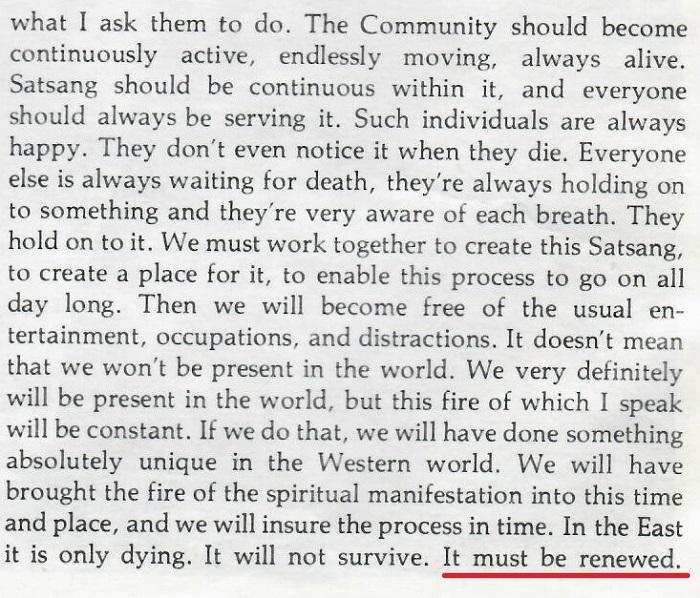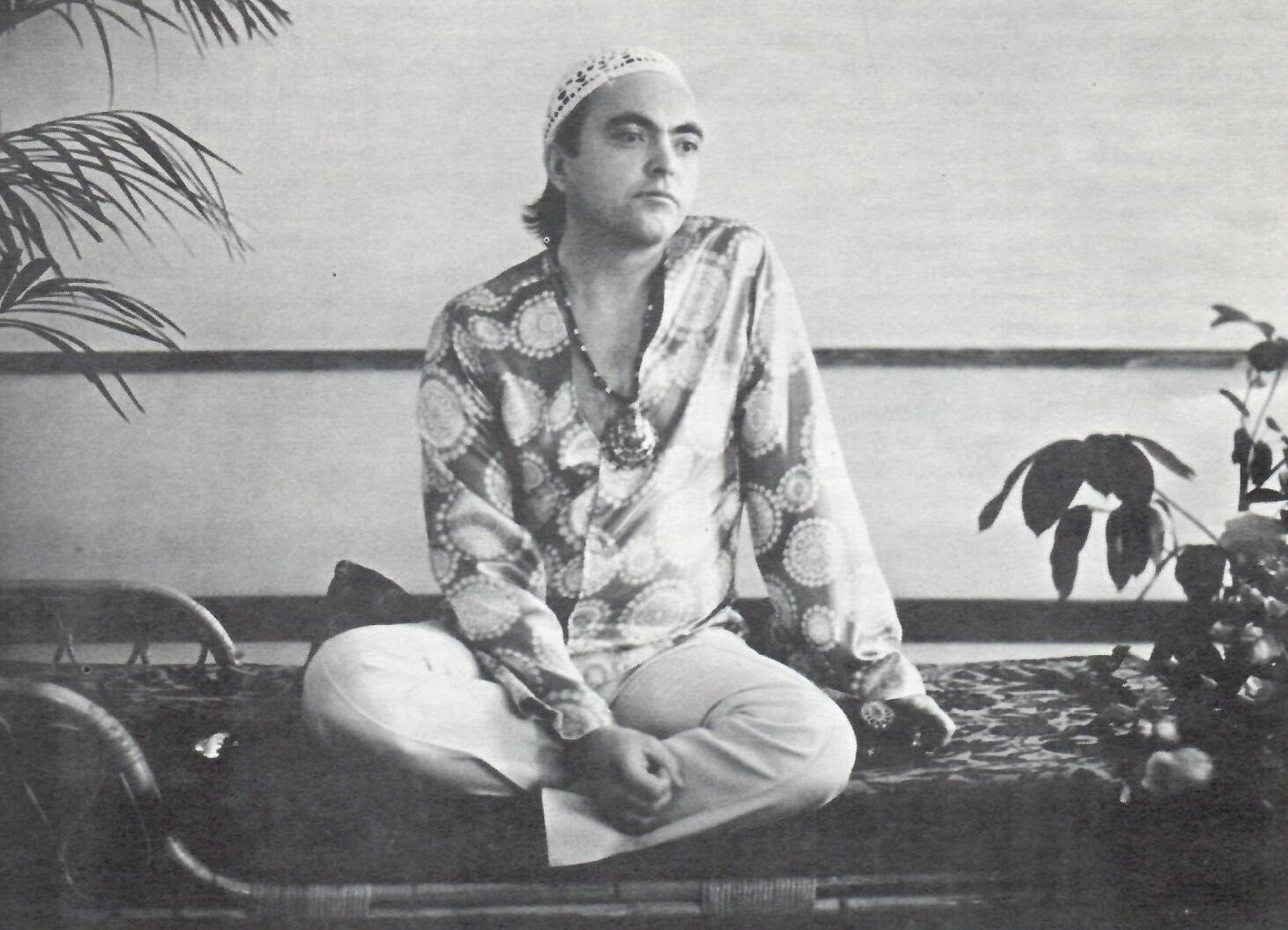


SATSANG – Sanskrit: Sat = True / Sanga = Company
Originall Published in The Dawn Horse Magazine, No. 5 (Vol 2, Nbr 3) 1975
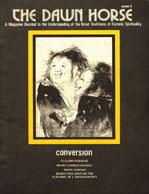
From a talk by Bubba Free ]ohn to his devotees on June 28, 1973.
![]() he principle of ordinary life is conflict. It is un-consciousness. It is the strategies that we suffer in relation to one another. Freedom is not something you do in the midst of that. Freedom is not trying to bring it to an end by analyzing yourself, analyzing the world, telling everybody where they’re at, where you’re at, changing your behavior patterns, having visions, believing things, all these numbers on a life level, a religious level, a spiritual level, whatever. All these games that people play out are reactions to the essential conflict of life. But life is conflict as long as it is lived from the point of view of its own principle, which is unconsciousness.
he principle of ordinary life is conflict. It is un-consciousness. It is the strategies that we suffer in relation to one another. Freedom is not something you do in the midst of that. Freedom is not trying to bring it to an end by analyzing yourself, analyzing the world, telling everybody where they’re at, where you’re at, changing your behavior patterns, having visions, believing things, all these numbers on a life level, a religious level, a spiritual level, whatever. All these games that people play out are reactions to the essential conflict of life. But life is conflict as long as it is lived from the point of view of its own principle, which is unconsciousness.
So, it is not any of the things that men and women do to overcome life that produce its radical transformation. It is only the intervention of Satsang as a condition, as a principle, that works this transformation of life. If the individual lives Satsang always and lives his relationships from the point of view of Satsang, he begins to see not just the strategies of others, but his own strategy. This seeing of your own strategy doesn’t particularly take the form of self- analysis, of ideas and mental “knowings” about yourself
that you can dramatize continually. This form of knowledge makes your games obsolete and unnecessary. It makes you responsible for your strategy. It makes you free of the dramatization of your own pattern, because you begin to see the nature of it and to understand the roots of it, the cause of it, the principle by which all your ordinary activity is governed, the pattern that supports it. And when this occurs a person certainly does become peaceful, sublime, free, blissful. But this freedom is the prior freedom of Truth, so it does not preclude or eliminate the ordinary activities of life. What it does is make the conditions of life appear in relation to the principle of Truth rather than the principle of conflict.
For the man of understanding life appears as it does for others, but it does not amount to a dilemma. It does not imply a dilemma for such a one. But for one who doesn’t understand, who is already unconscious, already bound to the principle of ordinary life, everything appears as a dilemma, everything implies a dilemma. Everything! He looks at the sky – dilemma! Life is a dilemma. And, depending upon his tendencies, he begins to think about it. He begins to look for the source of this dilemma in his peculiar state of life, his mentality, he begins to rake through his head for all kinds of analytical clues. After a while he may begin to think that he’s got it down, that he sees it pretty well. But all he has seen is the picture of this conflict. He’s not free. He has not understood it. Because the genuine understanding of a condition is identical to the freedom which is natural to that condition, while simply analyzing yourself without lifting yourself out of the ordinary principle of life is not free. Even your analysis, even your understanding of yourself is a form of dilemma. That’s why people who know everything about themselves and everything else from a religious or psychological point of view, or some other point of view, are typically always still unsatisfied.
This kind of person is always going through some dramatic conversion experience. I was listening to a man on television the other night. Apparently he had been a minister for years, one of these guys who had a vast study with thousands of books, and he had played all the theological games and acquired vast intellectual baggage about everything that could possibly be brought up. Every Sunday he would give his sermons about ontology and the demythologization, or whatever the word is, of Jesus in the New Testament. And he would explain everything in psychological and non-miraculous terms, everything.
So, on this show this guy explained how for about four years these people from a fundamentalist group in his town had hounded him. They would come up to him at religious meetings and various other occasions and as soon as they saw him they’d open the Bible and go through their whole “the way it is” game. And he would always be very offended by such people. He didn’t want to have anything to do with them. But they persisted.
And now the miracle story begins, the story of his conversion. “For some reason or other I was always busy. Every night I’d be busy, but on this one night I happened to be free. And this man came over and he said, ‘Bill [or whatever his name was, you’re not satisfied, you’ve got to give your heart to the Lord.'” And the guy says, “Yes, Jack, I want him. Let’s get down on our knees.” And he gets down on his knees and he surrenders. Now he was just at the right psychological moment: The next thing he knew, he saw doors open in space, and Jesus walked out and looked at him, and “something went out of him that never came back and something came into him that never went away.”
So, he used all this simple language to describe himself, and since that time he has been just a goofy, happy guy. He went into church the next morning and told everybody he’d found Jesus. The next Sunday, he said, nobody came back. He had this big church built entirely on his own intellectual game, and once that fell apart, so did the church. So now he’s a minister for a fundamentalist Christian group.
The significance of this story is how the individual who tries to find his peace by analyzing the manifestation of his life is never ultimately satisfied. Even his self-analysis is still a form of dilemma, a form of the same condition that he was suffering to begin with. So such people are always going through some dramatic, emotional, conversion-type transformation, if they go through anything at all. They may die in that state of suffering, but typically such people are likely to fall into this unreasonable state of happiness. They may associate it with some particular religious system or other, or some spiritual force or diety, whatever, but the transformation is genuine. The case of this minister is a valid one completely aside from his identifying it with Christianity. It is a story of how the individual falls out of the principle of his ordinary life. When he falls out of that into this unreasonable principle, a prior unity with the Real, with the Divine state, from that point everything is answered, free, everything becomes simplified. Previous to that instant, when he was still operating from the point of view of his usual life, everything he tried failed to do the ultimate thing it was designed to do.
The individual through all of his seeking acquires more and more baggage, mental, physical, emotional. He accumulates modifications. But everything still amounts to that same condition, that dilemma. In some the pressure of this inescapable dilemma builds up to a psychosis or neurosis or just unhappiness or emptiness. But the conversion experience, when it occurs, is a sign of the release from the ordinary principle of unconsciousness and necessary conflict into the prior principle of consciousness and freedom. And this principle is real. It appears through the symbolic representations of the various religions. The same kind of conversion occurs in all cultures but it is represented with different symbols. The pedantry and endless analysis that the minister previously represented is present in all cultures, but the real principle he came to represent is that turnabout from seeking and dilemma into the prior condition of freedom, Truth, Satsang. And without that conversion there is no spiritual life.
An indication of how it appears in all cultures is included in The Heart of the Ribhu Gita. In the beginning of this book there is a story about Ribhu, who was a Sage, a Self-realized man, and his disciple Nidagha. This took place in ancient times in India. Somehow or other Nidagha and Ribhu got together, and Ribhu told Nidagha the truth from the radical point of view. Ribhu himself lived it and his speech respresented it, but Nidagha was completly unavailable to it. He was obsessed, it says in the story with ceremonial religion – in other words the usual round of consolation and seeking and repetition. So, he left Ribhu and went back to his town to practice his ceremonial life, his religious practices, his search. But out of love for Nidagha, Ribhu would occasionally come back into town to look in on him. He would come disguised so that Nidagha wouldn’t notice him, and he would just enquire about him, occasionally say something to him without Nidagha’s knowing who he was.
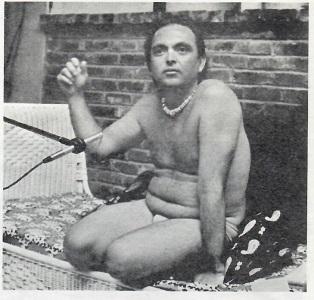
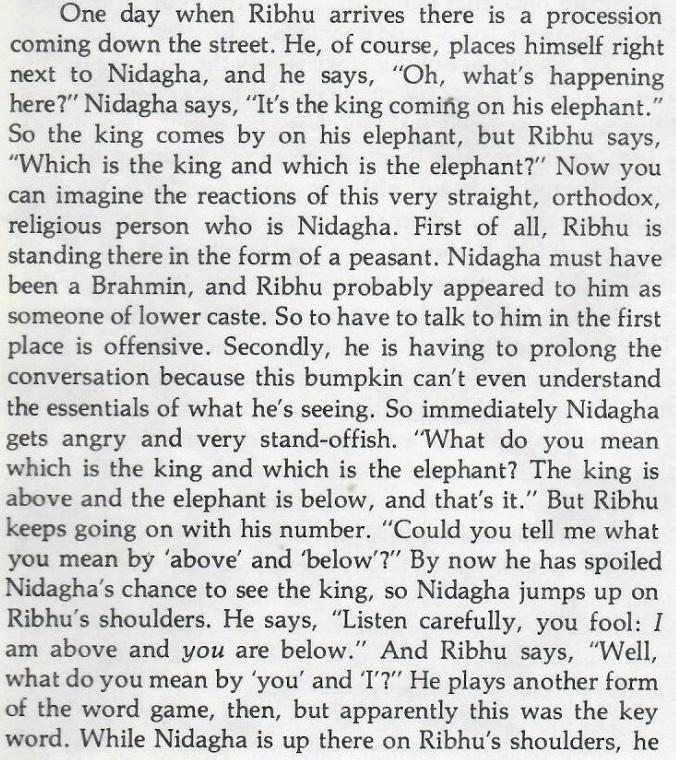
recognizes who Ribhu is. Immediately he jumps off and bows down to him.
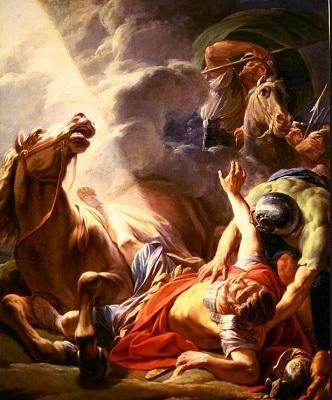
Conversion of St Paul
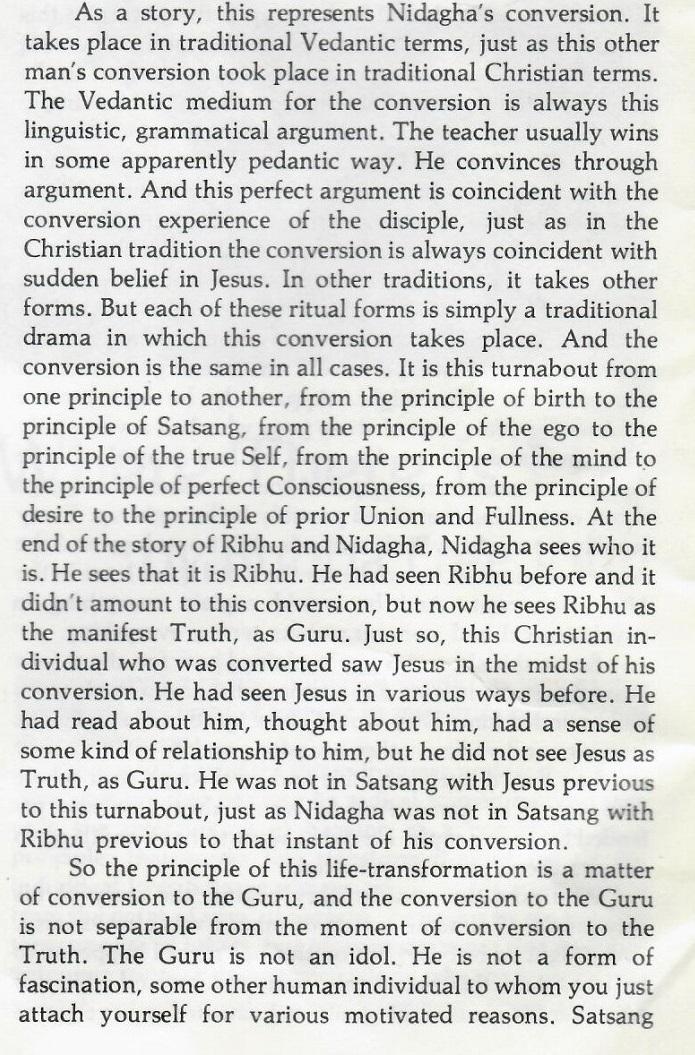
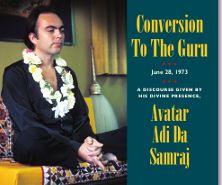
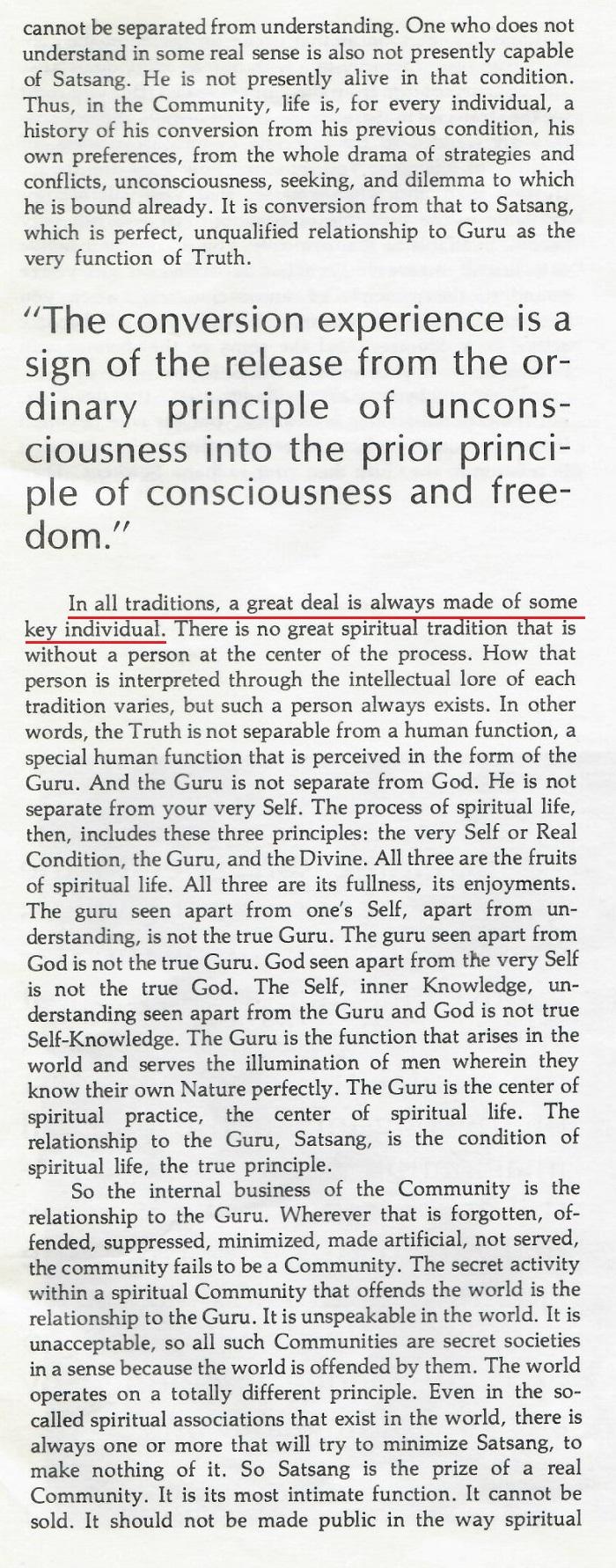
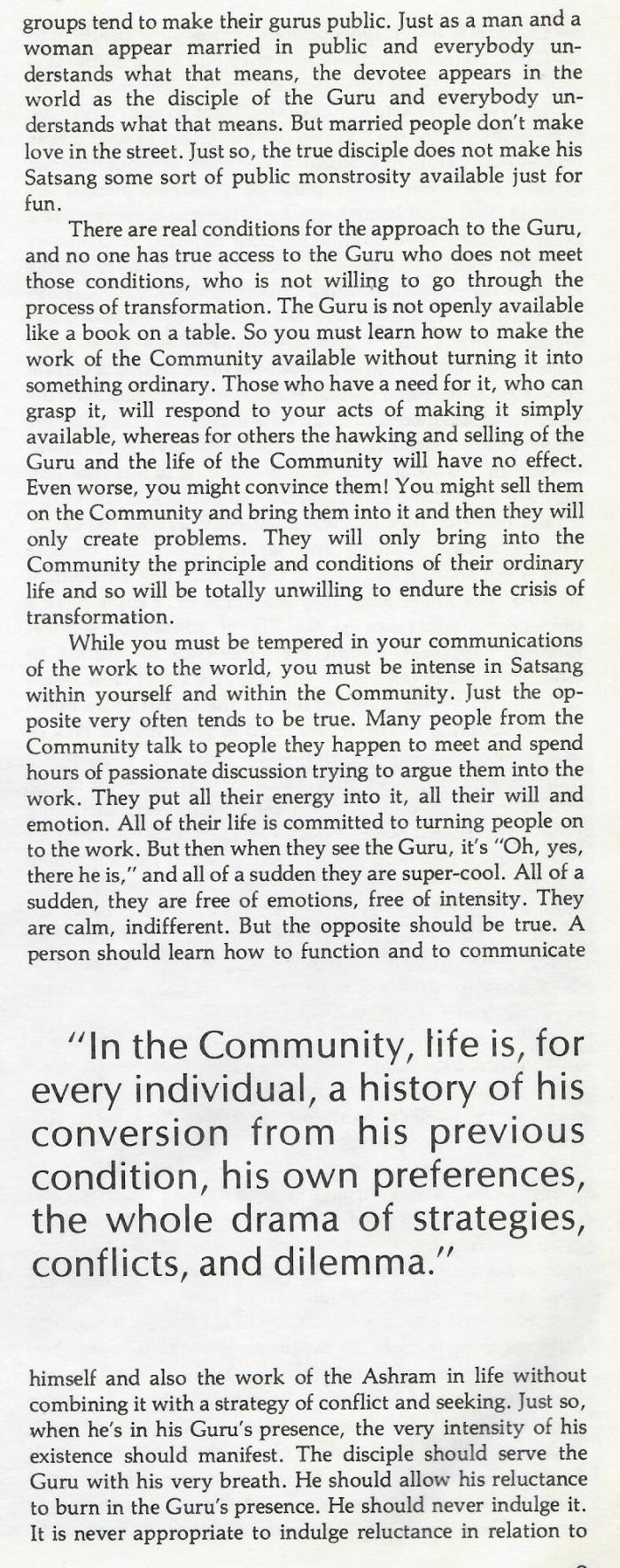
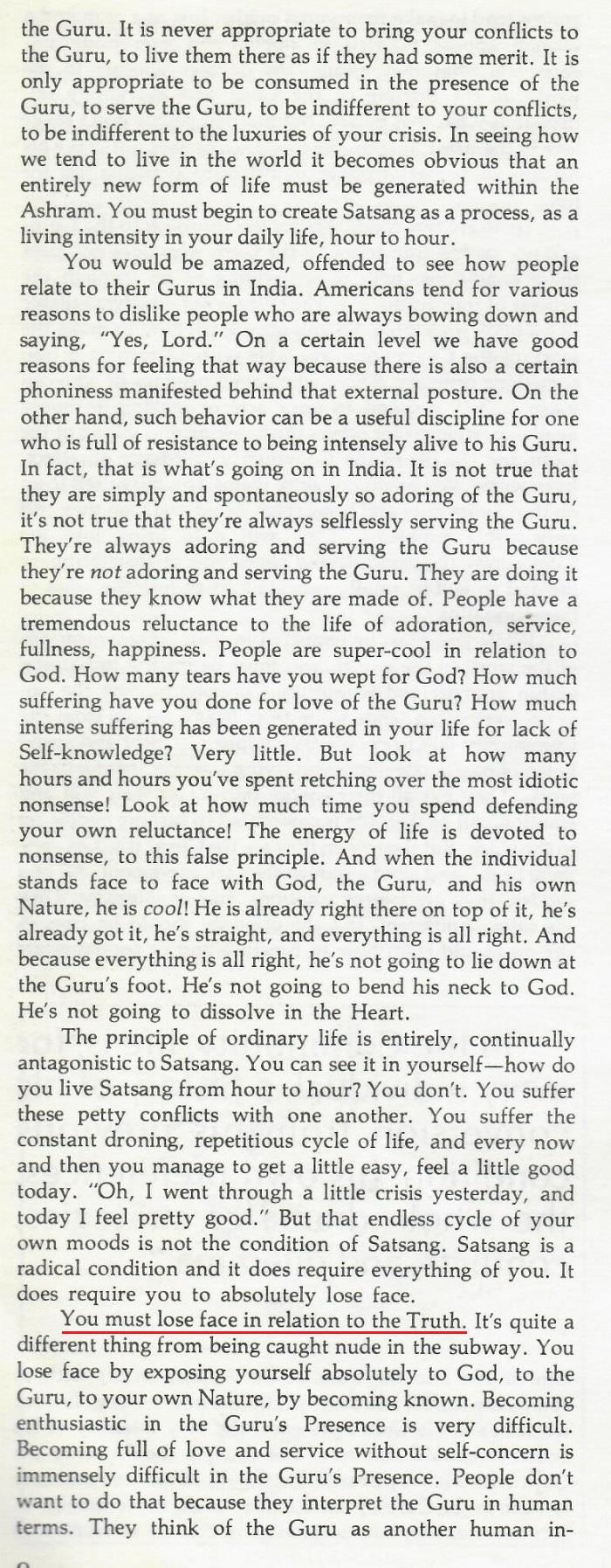
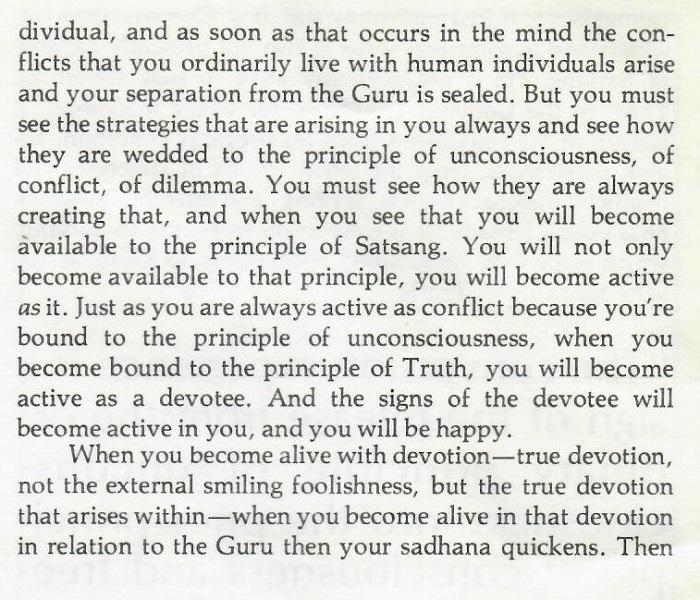
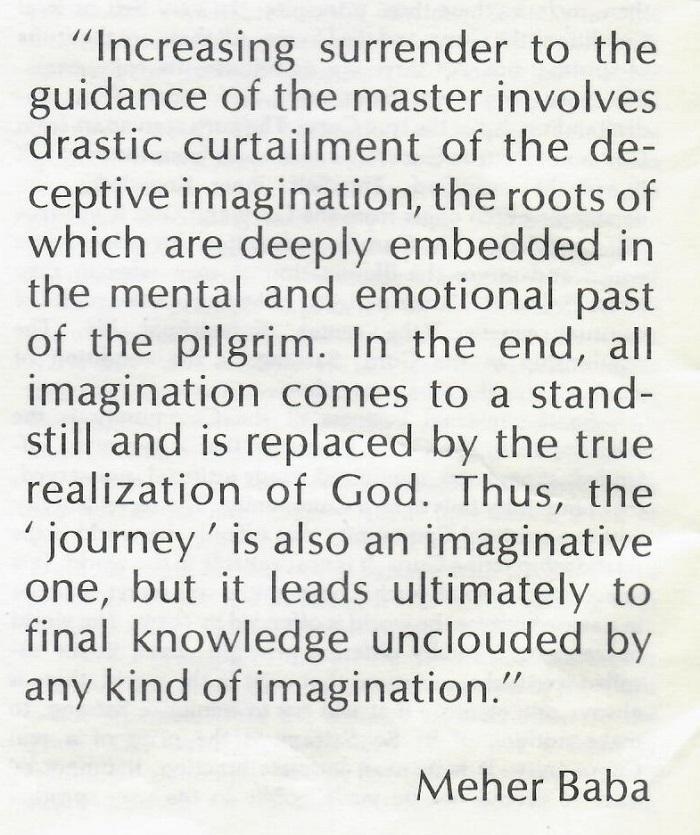
“I move only where there is fire”

